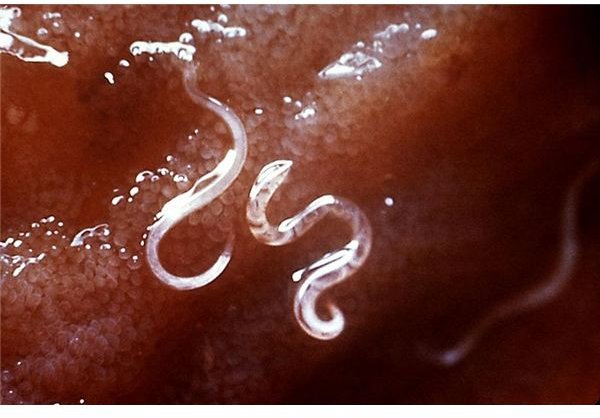Intestinal Parasites in Humans. A Close-up Look at Human Intestinal Parasites
Human Parasites
Parasitic infections in humans are a major health problem worldwide. Increasing urbanization, frequent travel and inadequate attention to hygiene are some of the reasons that have contributed to the spread of human parasites. Over 3.5 billion people are affected by human intestinal parasites every year, leading to various cases of anemia, malnutrition, stunted growth, rashes, nausea, vomiting, diarrhea, abscesses, intestinal bleeding, intestinal obstructions and even death.
Human Parasites
Over 3000 types of parasites, ranging from the invisible to the visible, can be found in humans. A person can be infected by a single type or by multiple types simultaneously. Here are some of the main types of parasites in the human body -
- Protozoa- giardia, crysptosporidium, amoeba
- Trematoda – flatworms, liver flukes, lung flukes
- Cestoda – tapeworms, pork worms
- Nematoda – roundworms, pinworms, hookworms, whipworms
Intestinal Parasites in Humans
Parasites can exist in the intestines for a long period without making their presence felt. Gradually, however, their activities take a toll on the body. Human parasites do harm in the following ways -
- They perforate organs and tissues and interfere with their functions.
- They can lump together in balls and cause obstructions or blockage in the organs. When this happens, medical practitioners may have to resort to surgery to remove the parasites. Sometimes the parasitic balls are mistaken for tumors.
- The parasites absorb vital vitamins and nutrients that would normally be absorbed by the host body.
- The parasites excrete toxic waste that poisons the host body.
- The parasites play havoc with the immune system and depress its functions.
- The parasites destroy cells.
Some parasites produce enzymes that fool the body into thinking that the parasites are a normal part of the tissue or organ. Due to this the immune system initially fails to fight off the intruders and they are able to multiply. One good example of this is the E.histolytica intestinal parasite. E.histolytica causes amoebiasis and can also perforate the intestinal walls to infect the bloodstream. The reason E.histolytica can prevail in the body at first is that it can escape detection by the immune system with the help of EhROM1, a rhomboid protease protein it produces.
This fact was discovered by Dr Sinisa Urban of the John Hopkins University School of Medicine, Dr Upinder Singh of Stanford University and their colleagues. The researchers are now exploring the possibilities of using the EhROM1 rhomboid enzyme as a target for the treatment of amoebic dysentery.
Treating Infections
In 2006, a research team from the University of California, San Diego (UCSD), and Yale University discovered that hookworm infection could be effectively treated with Cry5B, a protein produced by Bacillus thuringiensis (Bt). Bt, in spray form and as part of genetically enhanced crops, has so far successfully been used in agriculture to protect crops from pests.
The UCSD-Yale team gave the Cry5B Bt protein orally to lab hamsters and found that it killed or damaged larval and adult parasites as well as parasite eggs. It proved as potent as the Mebendazole drug, which is commonly used to treat hookworm infections. The researchers also experimented with other crystal proteins Cry6A, Cry14A and others related to them and found that only a select few could target the parasites effectively.
According to the researchers, the crystal proteins cannot bind with human or mammalian cells and therefore are safe for humans and mammals.
Using these crystal proteins in tandem with drugs like Mebendazole could lead to more effective treatments against human intestinal parasites. Finding newer, safer treatments is necessary as parasites have a tendency of becoming resistant to existing ones.
Sources
https://www.sciencedaily.com/releases/2006/09/060925143158.htm
